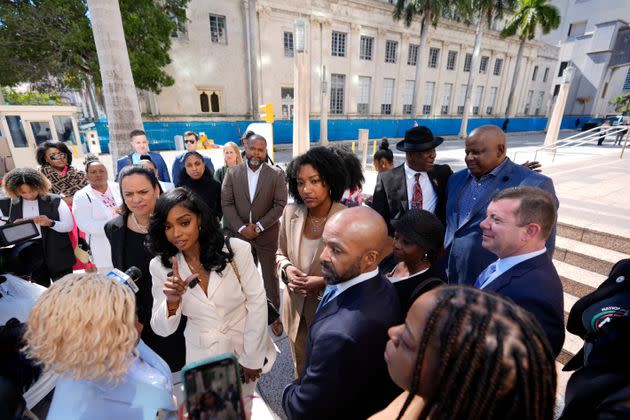Grants For Black Women Entrepreneurs Are Not ‘Discriminatory’

Arecentfederal court ruling temporarily blocked the distribution of a grant designed to support start-ups by Black women — and honestly, we shouldn’t be the only ones outraged.
The most audacious part is that the Fearless Fund’s Fearless Strivers Grant, designed to support Black women-led businesses with $20,000 in venture capital, was deemed discriminatory. The Fearless Fund is one of the venture capital groups targeted for its programs designed to encourage corporate diversity. Black women are currently the largest growing demographic of business owners, yet they receive less than 1% of venture capital funding, according to Reuters.
In 2023, one month after successfully dismantling affirmative action (the system put in place to address discriminatory admission practices of the past) at colleges through the conservative-leaning U.S. Supreme Court, the American Alliance for Equal Rights filed three lawsuits challenging organizations that support Black and other marginalized business owners.
For many Black entrepreneurs, the federal court’s decision feels like a racist residual of the 1921 Black Wall Street massacre: An incident where white supremacists set fire to and destroyed an entire neighborhood of Tulsa where Black businesses thrived. Today, instead of overt physical violence, conservatives are using the courts to strip Black and minority-owned businesses from any shot at leveling a playing field that was built only for white Americans to thrive in — and has been fostered as such for decades.
The American Alliance for Equal Rights calls itself a non-profit “membership” organization whose mission is to “challenge distinction and preferences made on the basis of race and ethnicity.” However, its consistent attacks on laws and initiatives that aim to rectify the disenfranchisement of minorities reveal the more obvious goal — to strip Black folks of any chance at achieving any form of financial security or long overdue reparations.
According to the lawsuit against Fearless Fund, their grant violates the Civil Rights Act of 1866, enacted after the Civil War to extend the right to make and enforce contracts to all citizens regardless of “race, color, and ethnicity.” The slightest bit of historical context will reveal that the law was meant to extend to Black Americans only the same rights that white people already had.
While many Americans want to believe that we live in some kind of post-racial economy where the injustices of the past have been magically erased and that Black Americans no longer face discrimination — that couldn’t be farther from the truth.
Black American entrepreneurs currently face several obstacles while getting their businesses off the ground. This Forbes piece points to exactly how racial bias in lending works — and why it sucks for all of us.
As of 2022, Black business owners received only 2% of $288 billion of venture capital funding. And Black women receive a small fraction of that 2%. Anyone with critical thinking skills can see the Fearless Fund’s mission is meant to give Black entrepreneurs a fighting chance — which is actually exactly what the Civil Rights Act of 1866 was designed to protect. Aside from this being a racist attack on Black women entrepreneurs, blocking this funding also disrupts the nation’s economic growth.
According to the Department of Commerce, minority-owned businesses contribute nearly $2 trillion annually to the economy and 9.43 million jobs to the job market. Yet a gaping equity gap remains between Black and brown business owners and their white counterparts.
If the American Alliance for Equal Rights and other organizations could simply recognize these disparities, they might be more inclined to stay out of Black and Brown folks’ business.

